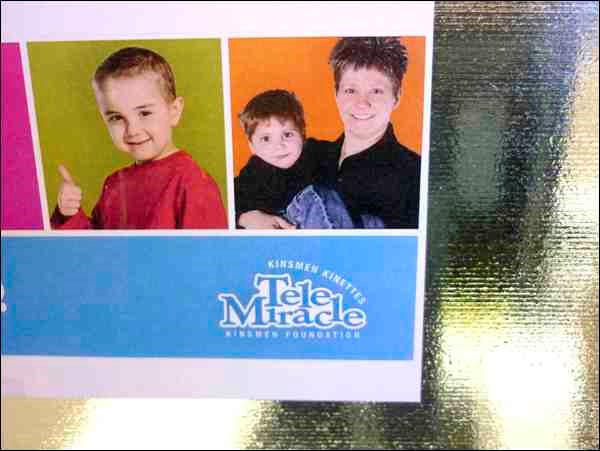Tickets at the door - only one week left before our final Telemiracle fundraiser adventure, at Maymont Hall Feb. 16. Doors open at 7:30 p.m. Admission is $15, including lunch. There will be a silent auction table, 50/50 and door prizes. Great band, dancing if you choose and lots of fun. There will also be a cash bar.
Car-Mel Country will be performing at Telemiracle March 3 at approximately 9 a.m.
Here is some information on organ transplantation: the moving of an organ from one body to another or from a donor site to another location on the patient's own body, in order to replace a damaged or absent organ.
The emerging field of regenerative medicine is allowing scientists and engineers to create organs to be re-grown from the patient's own cells, either stem cells or cells extracted from the failing organs. Organs and/or tissues transplanted within the same person's body are called auto grafts. Transplants performed between two subjects of the same species are called allo grafts. Allo grafts can either be from a living or cadaveric source.
The heart, kidneys, liver, lungs, pancreas, intestine and thymus can all be transplanted. As well as organs, tissues can be transplanted, including bones and tendons as musculoskeletal grafts, cornea, skin, heart valves and veins. Worldwide, kidneys are the most commonly transplanted organs, followed closely by the liver and then the heart. The cornea and musculoskeletal grafts are the most commonly transplanted tissues; these outnumber organ transplants by more than tenfold.
Organ donors may be living or brain-dead. Tissue may be recovered from donors who are cardiac-dead, up to 24 hours past the cessation of heartbeat. Unlike organs, most tissues other than corneas can be preserved and stored, or "banked," for up to five years.
Transplantation raises a number of bioethical issues, including the definition of death, when and how consent should be given for an organ transplant and payment for organs. Other ethical issues include transplantation tourism and even the socio-economic context in which organ harvesting or transplantation occurs. A particular problem is organ trafficking.
Some organs, such as the brain, cannot yet be transplanted in humans.
If you want to become an organ donor, you may think this process is very simple. Most drivers' licences allow the option of filling out a donor card. The trouble is, if you die, your family doesn't have to respect your wishes. It's important to take a few more steps to become an organ donor so you can make sure your will benefits others by your death.
One thing you should do, if you want to become an organ donor, is to discuss this desire with your family or the person who would make decisions for you in the event of your death, like your spouse. Be sure to find out how anyone involved would interpret your wish to become an organ donor.
If the people responsible for you would be unlikely to allow organ donation, you can take steps to ensure you can still become an organ donor. First, you can write a letter testifying your desire to be a donor; keep this letter with you at all times. If you want a stronger guarantee, find a member of your family or a close responsible friend to who you can assign durable power of attorney. For a small fee, you can work with a lawyer to prepare this document and appoint a person you know will respect your wish to become an organ donor. The choice is yours.




